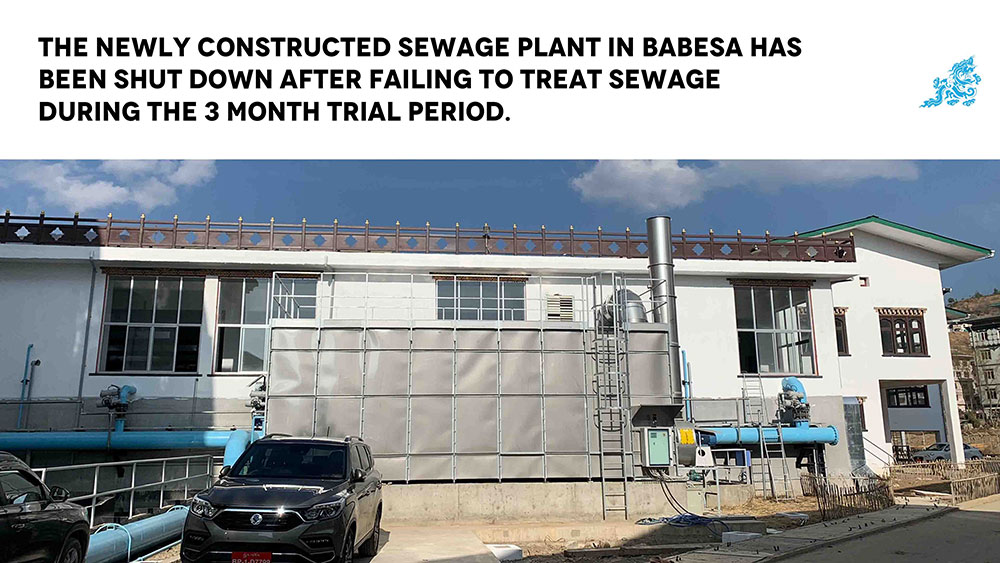… Project seeks automation and process engineers for its revival
The newly constructed sewage plant in Babesa has been shut down after it failed to treat sewage during the three-month trial period which began in December.
During the trial, sewage was directed from the usual wastewater stabilisation pond to the new plant. It has been diverted back to the wastewater stabilisation pond since March.
The plant could not treat the sewage and failed to meet the effluent parameters of sewage treatment plant discharge standards of National Environment Commission (NEC).
The plant has met only two of the five NEC standards, faecal coliform and pH.
NEC standard for Biological Oxygen Demand (BOD) is 30 mg/l whereas the new sewage plant’s BOD was double the NEC’s standard. The plant’s total dissolved solid was also double the NEC standard which is 100 mg/l.
The new plant sequence batch reactor (SBR) has a capacity of 12 million litres per day. The sewage is fed with oxygen every two hours for 45 minutes to help bacteria to respire and treat the sewage. About 15 employees are needed to manually operate the plant.
Thimphu thromde’s project manager for the Asian Development Bank project, Kinley Penjore, said earlier they assumed low temperature and absence of sewage feeding bacteria were responsible for the poor performance of the plant.
Kinley Penjore said that later a process engineer told them that it didn’t function as expected because it was not used at its optimum level meaning round the clock during the second nationwide lockdown.
The plant was not functioning at its optimum level during the second lockdown as there was no one to operate the sewage plant. So the plant was not fed with oxygen for more than 40 days during the lockdown.
Kinley Penjore said their focus now is to switch the operation of the plant from manual to fully automatic where a single person can operate the whole system. “ It is the only viable option in case of a complete lockdown.”
Kinley Penjore said the initial plan was to automate the system which was not possible since bringing in the experts was a challenge. He said they required at least two automation engineers and a process or chemical engineer. “So we decided to run the plant manually. We didn’t see the lockdown coming.”
After the trial, the contractor who designed and built the plant, TechnoFab Engineering Limited, hired two automation and one process engineer to fix the problems. However, only an automation engineer has arrived in the country and the other two are yet to come. The engineer is developing one of the two software needed for the plant’s automation.
According to contract terms the contractor is liable for overhead charges for the remedial measures. For the next five years, the contractor has to undertake the plant’s operation and maintenance.
Kinley Penjore said, “With restriction to import of foreign workers automation is on hold and we are hoping the situation to improve so that within a month or two the experts can come in the country.”
The officials expect the sewage plant to begin operating within the next few months manually if the restriction of bringing in foreign workers prolongs. “We will seek remote assistance from experts based in India.”
The SBR sewage plant construction project worth more than Nu 76.9 million began in 2016.
By Yangyel Lhaden
Edited by Tshering Palden


